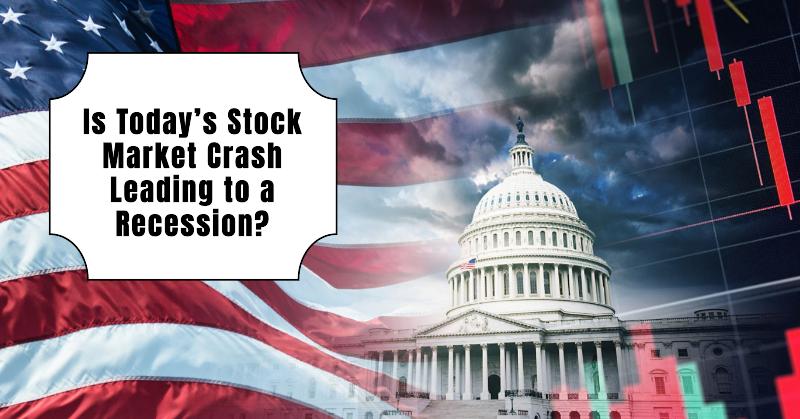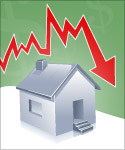In the wake of significant market turmoil, today’s financial panic looks like the stock crash in 1987. As economic fears escalate, drawing comparisons to the dramatic events of Black Monday, market experts express cautious optimism that we may not face a recession this time around.
Table of Contents
Is Today’s Stock Market Crash Leading to a Recession?
A Glimpse at the 1987 Stock Market Crash
On October 19, 1987, the stock market faced one of the most shocking collapses in history, with the Dow Jones Industrial Average plummeting by 508 points or 22.6% in just one day. While this chaos led to widespread panic among investors, contrary to common expectations, the U.S. economy did not slip into a recession.
Key points about the 1987 crash:
- Triggers: The crash was largely driven by steep declines in stock prices, exacerbated by investors selling off large positions in panic-driven waves, particularly fueled by algorithmic trading.
- Federal Reserve Response: The Federal Reserve acted swiftly to stabilize the economy, a move that is echoed in modern discussions as markets today react to various pressures.
As reported by Federal Reserve History, this event reshaped our understanding of market behavior and the critical role of swift governmental intervention.
Echoes of the Past: The Current Financial Landscape
Fast forward to August 2024, the global financial market is once again under duress. Following substantial sell-offs, including a two-day market crash where the S&P 500 Index closed 106 points, or 3%, lower, worries of a potential recession are permeating investor sentiment and market behavior.
The Nasdaq composite suffered even more, dropping 3.43%, while the Dow Jones plummeted by more than 1,000 points, equating to a loss of 2.6%. This market carnage resulted in a staggering $907 billion wiped off Nasdaq's market value.
Contributing Factors to the Current Downturn:
- Disappointing Job Reports: A disappointing jobs report intensified investors’ fears, leading to sharp declines in high-flying tech stocks like Nvidia, Apple, and Amazon. Notably, Apple experienced its worst day since September 2022, shedding 4.82% of its value.
- Investor Behavior: As investors rushed to buy U.S. treasuries for safety, mortgage rates began to decline, offering a potential opportunity for refinancing among some borrowers.
Reports indicate that fears surrounding a potential recession are not just anecdotal but stem from significant data points echoing the sentiment felt during the late '80s, as articulated in coverage by Fortune.
Current Situation Overview
- Market Plunge: U.S. stocks have sharply fallen due to heightened fears of an economic downturn.
- Investor Sentiment: Observations reveal that investors are weighing the risk of a recession against the backdrop of high interest rates and economic sluggishness.
- Global Impact: Major indices worldwide have experienced declines, notably the Nikkei 225, which saw a severe drop, contributing to a ripple effect across global financial markets.
Current Indicators and Concerns:
- Interest Rates: With interest rates remaining elevated, affordability and spending may be strained, mirroring some economic challenges from the 1980s.
- Unemployment Figures: Recent job data has raised alarm bells, contributing to fears of potential recession, as indicated by economist commentary.
- Consumer Confidence: A decline in consumer sentiment signals trouble ahead, with many consumers wary of ongoing economic conditions which hearken back to the recession fears of past market crashes.
Drawing Parallels: 1987 vs. 2024
While the conditions leading to today's market panic echo those from the late 1980s, critical differences exist:
Similarities:
- Market Volatility: Significant fluctuations characterize both periods, fueled by investor panic and external pressures.
- Federal Reserve's Role: Just as the Fed intervened in 1987, their decisions now will be pivotal in shaping investor confidence and market recovery.
Differences:
- Technology and Trading: Today's rapid trading environment is a stark contrast to the 1987 landscape. Modern algorithms can amplify market responses almost instantaneously, at times leading to rapid sell-offs.
- Global Economic Factors: The interconnectedness of economies today may mean that volatility has wider and more immediate repercussions across markets around the globe.
Lessons Learned from 1987: A Modern Perspective
The 1987 stock market crash provides key insights that are particularly relevant today:
- Strength in Policy Response: Governments and financial institutions must be prepared to act decisively to restore confidence.
- Market Psychology: Understanding investor behavior—as individuals react with emotion rather than logic—remains critical in predicting and responding to market movements.
- Resilience of the Economy: Even amidst fierce downturns, economies can exhibit remarkable recovery if the right measures are implemented.
As emphasized by Investopedia, these principles are not just historical lessons but are essential in navigating current financial challenges.
Future Considerations for Investors
Given the ongoing financial turmoil mirroring the 1987 crash, what should investors consider?
- Diversification is Key: Protecting portfolios by diversifying investments can stabilize risk exposure.
- Stay Informed: Active monitoring of economic conditions can empower investors to react appropriately to emerging trends.
- Long-Term Vision: Institutional history shows that market rebounds typically follow downturns; staying committed to long-term strategies can pay off.
Conclusion: Navigating Forward Together
The current financial panic, while concerning, evokes a familiar narrative from 1987. The resilience demonstrated by our economy in the past leaves room for cautious optimism. By remaining vigilant, adaptable, and informed, investors can navigate the complexities of today’s markets with greater confidence.
To explore more about the intricacies of the stock market crash of 1987 and its implications, visit Wikipedia. Understanding historical context will be crucial as we face the challenges of the modern financial landscape.
ALSO READ:
- Is the Bull Market Over? What History Says About the Stock Market Crash
- Wall Street Bear Predicts a Historic Stock Market Crash Like 1929
- Economist Predicts Stock Market Crash Worse Than 2008 Crisis
- Stock Market Forecast Next 6 Months
- Next Stock Market Crash Prediction: Is a Crash Coming Soon?
- 65% Stock Market Crash: Top Economists Share Scary Predictions for 2024
- Stock Market Crash: 30% Correction Predicted by Top Forecaster




